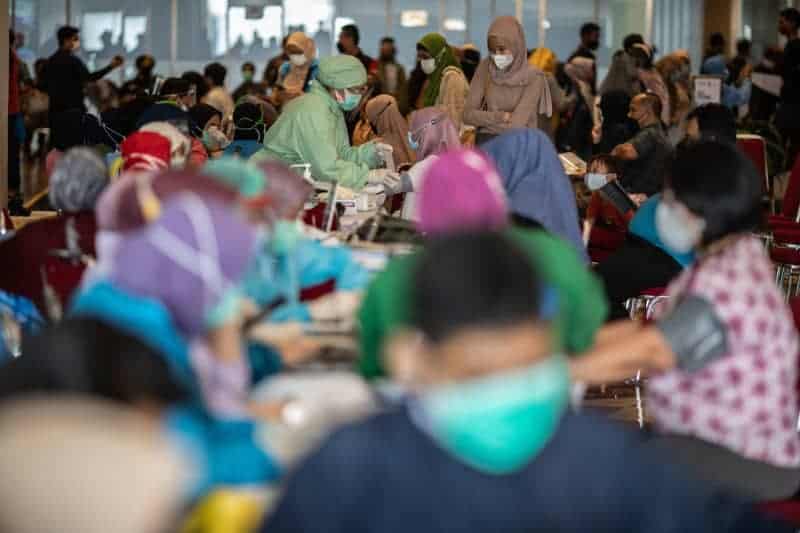
DPA

Numerous studies have found that people who recover from Covid-19 rarely become reinfected in the months that follow, according to a November paper in the journal The Lancet Infectious Diseases.
And yet the US and Germany are among the countries with a more narrow view of how long immunity from a previous infection can be recognized before a vaccine is required, namely 90 days.
EU states have agreed that travellers should be able to move freely within the union from February 1 without further requirements if they present valid proof of recovery in the past 180 days – six months.
However EU countries are free to limit the time they recognize immunity from previous infection when it comes to activities within the country, such as visits to restaurants.
So what does research tell us? According to a September study, infection with the Delta variant reduced the risk of re-infection by more than 80 per cent.
Another study showed that of more than 9,000 people previously infected, only 0.7 per cent became re-infected within a year.
It should be noted here that the Omicron variant, which has infected more people who have recovered from other variants, was not yet circulating at the time of much research into immunity from coronavirus infection.
Immunity frome Omicron varies
“Once you’ve been through an infection, you’re immune,” says German immunologist Carsten Watzl. “But immunity is very variable.”
For one person, he says, it’s very strong; for another, it’s rather weak. “On average, you are slightly less protected than with two doses of BioNTech.”
But, Watzl emphasizes, there are also advantages: “In those who have recovered, the antibody level declines somewhat more slowly than in those who have been vaccinated.”
Antibodies, moreover, are only part of the protection the body develops. T cells could potentially even be active for life.
Patients infected with Sars-Cov-1 in 2002/03 still had T cells against that type of virus 17 years later, according to The Lancet Infectious Diseases.
The authors explicitly recommend that policymakers put those who have recovered on an equal footing with those who have been vaccinated. And yet, again, this judgement was made at a time when the Delta variant was dominant.
Is the situation different with Omicron?
Watzl does not believe the situation for people who have recovered from a coronavirus infection has decisively changed with Omicron.
“It is true that studies show that many antibodies of recovered persons can no longer recognize the Omicron variant as well, and that these persons thus have hardly any protection against the infection,” says the immunologist.
“But this change is equally true for vaccinated individuals. If you cut the immunity time for infected people, you actually have to do the same for vaccinated people.”
Shortening it to three months, he said, is a “political decision that is not understandable based on the data.” Critics say this decision was primarily about getting more people to get vaccinated, and not a scientifically sound solution.
For their part, German health officials say they reduce the time span they recognize immunity from previous infection “because the scientific evidence to date indicates that unvaccinated people have a lowered and even more time-limited protection against re-infection with the Omicron variant after a passed infection compared to the Delta variant.”
Virologist Hendrik Streeck, a member of the German government’s expert council, told daily newspaper Die Welt that it is “really important to make sure that decisions are based on sound knowledge and not made arbitrarily.”
In a recent guest editorial for Die Zeit newspaper, he wrote: “The growing number of people who have recovered from an infection are being neglected.”
“Since the protection after an infection is comparable to that after a vaccination, the recovered status should be upgraded, and previously infected people should be put on an equal footing with vaccinated people.”



Recommended Comments
There are no comments to display.